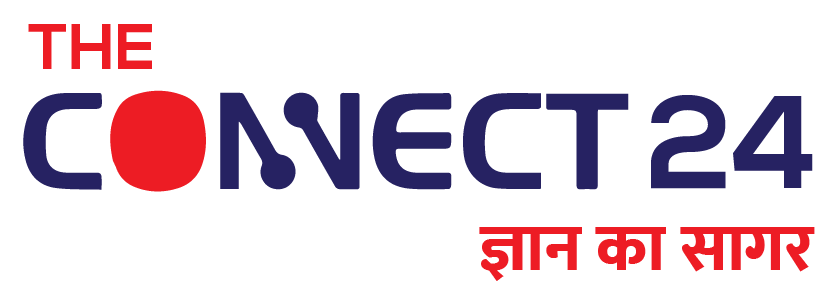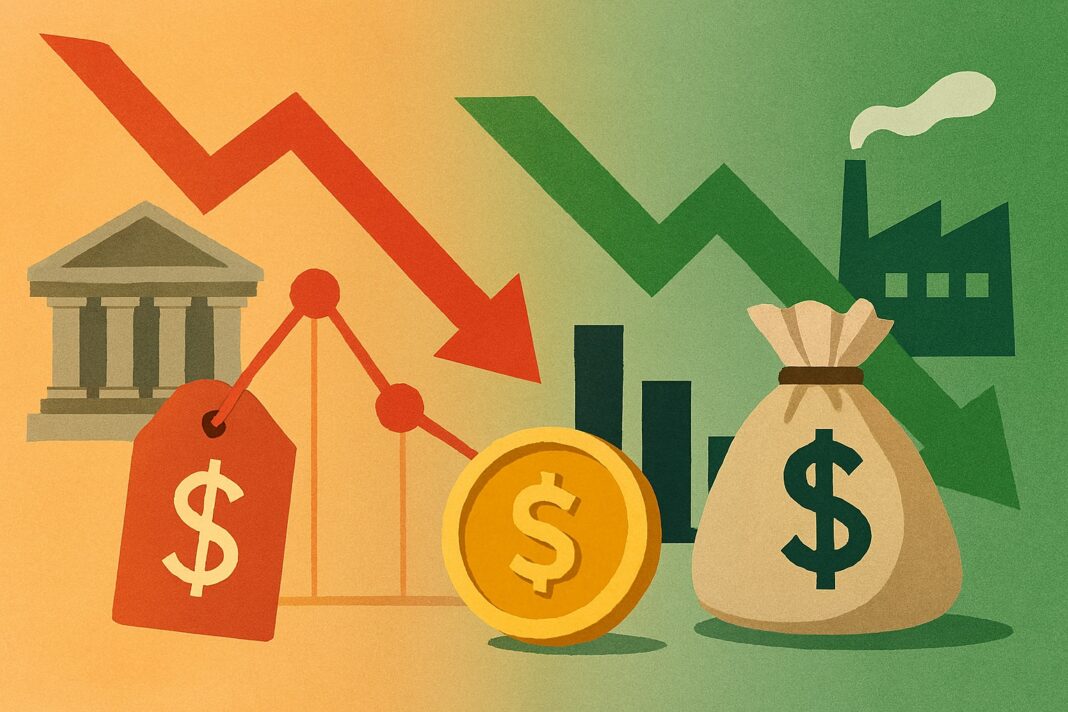Is Falling Inflation Good or Bad: Inflation plays a crucial role in the growth and stability of any economy. When inflation rates decline, the immediate thought is that it benefits common citizens because essential commodities become more affordable. However, the actual impact of falling inflation rates is far more complex. A reduced inflation rate can create both opportunities and challenges for a nation. It may boost consumer purchasing power, but at the same time, it can also discourage investments and slow down economic growth. This article explains the advantages and disadvantages of declining inflation rates in detail through eight well-explained points.
Increased Purchasing Power of Consumers
A lower inflation rate directly benefits consumers by increasing their purchasing power. When prices remain stable or rise very slowly, households can buy more goods and services with the same income. This improves living standards, particularly for low- and middle-income families. It also encourages saving, as people feel more secure about the value of their money. On the other hand, if inflation drops too sharply, it may signal weak demand in the economy. While short-term benefits are clear, policymakers must ensure that low inflation does not slide into deflation, where falling prices discourage spending altogether. Thus, moderate inflation decline is positive, but a sharp fall can bring risks.
Stability in Essential Commodities
When inflation falls, the cost of essential commodities such as food, fuel, and medicines stabilizes. This is a relief for the common population, as basic living expenses consume a major share of their income. Governments also find it easier to manage subsidy programs and welfare schemes because lower inflation reduces fiscal stress. For industries dependent on raw materials, reduced inflation brings predictability in costs and production planning. However, if inflation falls due to weak consumer demand, it may hurt farmers and small businesses, who then earn less for their products. Therefore, the stability of inflation must balance affordability with fair income distribution for producers.
Positive Impact on Savings
Low inflation rates encourage savings as the value of money remains stable. People are more motivated to deposit money in banks or invest in financial instruments when they are assured that inflation will not erode their returns. This builds a healthy capital base for banks, which in turn can provide loans for businesses and infrastructure. On the contrary, very low inflation or deflation can reduce interest rates drastically, leaving savers with minimal returns. This discourages long-term savings and may weaken pension funds. Therefore, moderate inflation decline benefits savers, but extreme dips can reduce financial security.
Lower Interest Rates for Borrowers
Falling inflation often leads to lower interest rates, making borrowing cheaper for businesses and individuals. Entrepreneurs can access loans for expanding their ventures, while homebuyers and students benefit from affordable EMIs. This creates opportunities for economic growth, infrastructure development, and job creation. However, excessively low inflation may discourage banks from lending aggressively, as profit margins shrink. Moreover, if businesses sense weak consumer demand, they may avoid borrowing even when interest rates are low. Thus, lower inflation supports credit growth, but its effectiveness depends on overall demand in the economy.
Impact on Employment Levels
Declining inflation can affect employment in both positive and negative ways. On the positive side, cheaper loans and stable prices encourage industries to expand, creating jobs. Consumers also spend more when they feel financially secure, boosting demand for goods and services. However, if inflation falls because of low demand, industries may cut production and reduce their workforce. In such cases, unemployment rises despite low prices. Economists call this a deflationary trap, where falling inflation reduces spending, investment, and jobs. Hence, while moderate inflation decline may strengthen employment, sharp drops can damage labor markets.
Effect on Foreign Investment
Foreign investors view low and stable inflation as a sign of economic discipline and predictability. This attracts investment into a country’s stock markets, real estate, and industries. For multinational companies, low inflation means lower operational costs and better returns on investment. However, extremely low inflation can signal economic stagnation, which may scare away investors. Countries with deflationary risks often face capital outflow as investors seek better growth opportunities elsewhere. Therefore, foreign investment thrives when inflation remains low but balanced, not when it points toward a weak economy.
Government’s Fiscal Benefits and Challenges
A decline in inflation reduces government spending on subsidies and welfare programs, giving fiscal relief. For example, lower fuel prices reduce subsidy burdens and create space for infrastructure investment. Similarly, interest payments on public debt decline with falling inflation rates. However, governments also face challenges because tax collections drop when prices are stagnant. Lower inflation means slower growth in indirect taxes like GST or VAT, which may reduce government revenue. Thus, while falling inflation helps in controlling expenditure, it also limits fiscal income, forcing governments to strike a balance.
Long-Term Economic Growth Outlook
In the long run, a country’s growth depends on maintaining inflation at a healthy level-neither too high nor too low. A gradual decline in inflation helps build trust among consumers, investors, and international partners. But if the decline turns into deflation, the economy risks a slowdown, job losses, and reduced innovation. Central banks usually target an optimal inflation rate, often between 2-6%, to ensure stability. Therefore, while declining inflation provides short-term relief, policymakers must monitor it carefully to prevent negative long-term consequences. Balanced inflation ensures sustainable growth, strong investments, and stable employment opportunities.
ALSO READ-Government vs. Private Banks: Which Is Better for Personal Loans?
Disclaimer: The articles, videos, and news published and shared on Theconnect24.com covering topics such as religion, astrology, health, yoga, history, mythology, and others are intended solely for general informational purposes. These materials are sourced from various references, and Theconnect24.com does not guarantee or verify their accuracy, completeness, or authenticity. Viewers are strongly advised to seek guidance from qualified experts or specialists before practicing, following, or experimenting with any information related to astrology, health, or similar subjects. This content is presented purely for the interest of viewers and does not carry any scientific validation or evidence.



